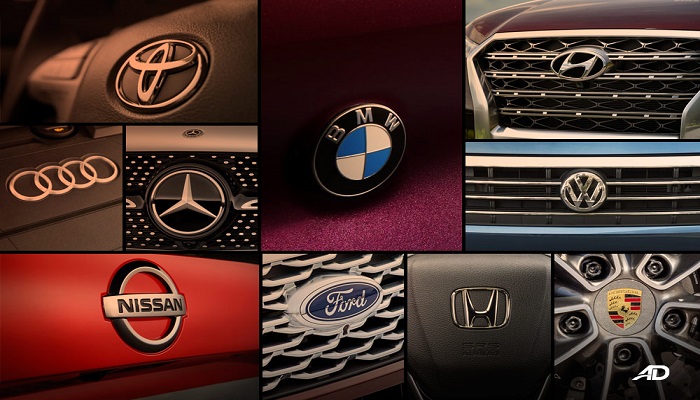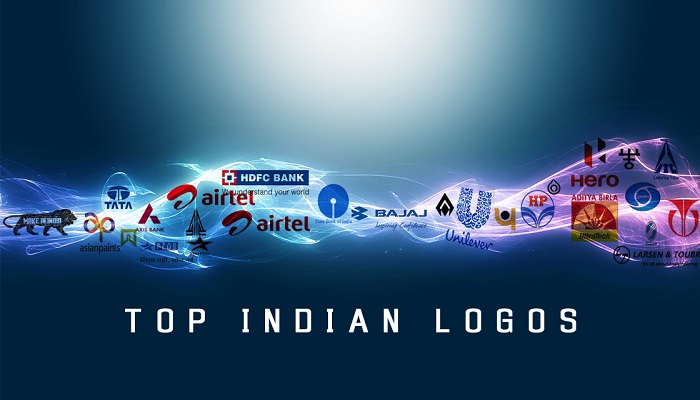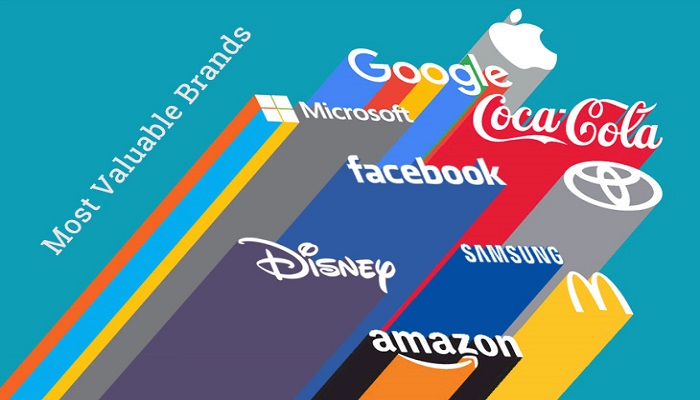Here are a few of the world’s most beloved car brands:
1.Toyota:
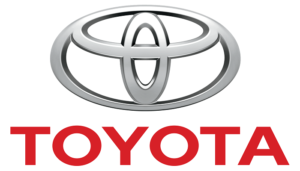
Established in 1937 by Kiichiro Toyoda, Toyota is the world’s largest automobile manufacturer by production and sales volume. They produce a variety of vehicles, such as passenger cars, trucks, buses, and SUVs, at their headquarters in Toyota City, Japan.
History: Toyota began as Kiichiro Toyoda and established an automobile division of Toyoda Automatic Loom Works in 1933. The Model AA, launched in 1936, marked Toyota’s debut in mass production; two years later, the Toyopet Crown hit American shores. This success spurred Toyota Motor Sales USA Inc.’s establishment in 1958; later that decade saw the introduction of the Toyota Corolla – which would become the world’s best-selling car ever since. Nowadays, Toyota boasts manufacturing plants across 27 countries and sells its vehicles across more than 170 countries worldwide.
Brand Identity and Reputation: Toyota is renowned for producing reliable, high-quality vehicles built to last. Their focus on quality has earned them a reputation for creating cars that need minimal upkeep or repairs. Furthermore, Toyota emphasizes sustainability through investments in hybrid and electric vehicle technology.
Brand Perception and Consumer Preferences: Consumers widely perceive Toyota as a trustworthy, dependable brand. The company’s quality reputation has made it an attractive option for buyers searching for long-lasting vehicles. Popular models from Toyota include the Corolla, Camry, RAV4, and Highlander; each market has its preferences.
Model Lineup and Features: Toyota offers a diverse lineup of cars, trucks, SUVs, and hybrids. Popular models include the Camry, Corolla, RAV4 Hybrid, Highlander, and Tacoma. Toyotas are known for their advanced safety systems like Toyota Safety Sense, including lane departure warnings, adaptive cruise control, and automatic high beams. Furthermore, they offer hybrid and electric models like Prius Hybrid or Mirai hybrid/electric vehicles.
Industry Trends and Innovations: Toyota has been at the forefront of electrification in the automotive industry. They’ve invested heavily in hybrid and electric vehicle technology, with models like the Prius and RAV4 Hybrid leading the charge. Toyota also ventured into hydrogen fuel cell research, with Mirai serving as their first vehicle.
Marketing and Advertising Strategies: Toyota’s marketing strategy emphasizes the company’s dedication to quality and dependability. Its advertising campaigns typically showcase features and benefits of its vehicles, such as advanced safety components or fuel economy ratings. Furthermore, Toyota emphasizes sustainability by promoting hybrid and electric models as environmentally friendly alternatives.
Competition and Market Share: Toyota faces stiff competition from several car brands, such as Honda, Ford, and General Motors. Nevertheless, Toyota remains among world’s top car brands and largest automobile producer by production volume. In America alone, its market share hovers around 14%, making it one of the top-selling brands.
Future Outlook: Toyota’s future prospects appear promising as the company invests in advanced technologies like hybrid and electric vehicle technology and hydrogen fuel cell vehicles. Toyota plans to sell 5.5 million electrified vehicles annually by 2025 – including hybrids, plug-in hybrids, and fuel cell cars alike – while maintaining its reputation as a trusted brand that produces quality vehicles with dependability.
2.Volkswagen:

Volkswagen (abbreviated as VW) is a German automotive manufacturer founded in 1937. They produce vehicles such as cars, trucks, and buses under their brand, Volkswagen. Headquartered in Wolfsburg, Germany, VW serves as the flagship brand of the Volkswagen Group – the world’s largest automaker by sales volume and one among top car brands.
History: Volkswagen was established in 1937 by the German Labour Front, a Nazi organization. Initially named “Volkswagenwerk GmbH,” their mission was to produce an affordable car for German people, ultimately producing the iconic Beetle. Later, in the 1960s, VW released their Type 2 van, which quickly gained popularity among hippies and surfers worldwide. Nowadays, Volkswagen has production facilities across 14 countries and sells its vehicles in over 150 nations worldwide. And Volkswagen is one among the top car brands worldwide.
Brand Identity and Reputation: Volkswagen’s brand identity is built upon producing high-quality, well-engineered, affordable vehicles for a broad range of consumers. The company stands out for its impressive engineering capabilities and for producing reliable automobiles. Furthermore, Volkswagen has made an impressive commitment to sustainability with significant investments in electric vehicle technology.
Brand Perception and Consumer Preferences: Volkswagen is widely perceived as a brand that produces high-quality, reliable vehicles at affordable prices for many people. While customer preferences vary by market, some of Volkswagen’s popular models include the Golf, Passat, and Tiguan.
Model Lineup and Features: Volkswagen offers a diverse lineup of cars, SUVs, and electric vehicles. Popular models include the Golf, Jetta, Passat, and Tiguan. Volkswagen vehicles boast advanced safety technologies like lane departure warnings, adaptive cruise control, and automatic emergency braking. Furthermore, VW provides electric vehicle options like ID.3 or ID.4.
Industry Trends and Innovations: Volkswagen has been at the forefront of electrification in the automotive industry. Their models, like ID.3 and ID.4, demonstrate their dedication to electric vehicle technology. Moreover, VW is investing heavily in autonomous driving technology, testing self-driving cars on public roads for testing purposes.
Marketing and Advertising Strategies: Volkswagen’s marketing strategy highlights the company’s dedication to quality, reliability, innovation, and sustainability. Advertising campaigns highlight vehicle features like advanced safety systems or fuel economy ratings. Furthermore, Volkswagen promotes electric vehicles as environmentally friendly alternatives.
Competition and Market Share: Volkswagen faces stiff competition from a variety of automotive manufacturers, such as Toyota, Honda, and Ford. Nevertheless, Volkswagen remains one of the world’s top car brands. In America alone, VW’s market share hovers around 2%, placing it against other European brands like Audi or BMW.
Future Outlook: Volkswagen’s future outlook is positive, as the company invests in cutting-edge technologies like electric and autonomous driving. Their goal is to sell 1 million electric vehicles annually by 2025, and they plan to introduce several new electric models over several years. Furthermore, Volkswagen will prioritize quality and dependability in vehicle production, maintaining its reputation as a trusted and dependable brand.
3.Ford:
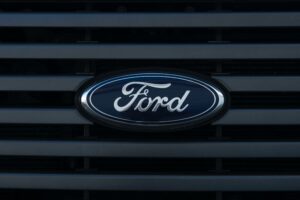
Ford is an American multinational automobile company headquartered in Dearborn, Michigan, founded by Henry Ford in 1903. They are renowned for producing various cars, trucks, SUVs, and commercial vehicles.
History: Henry Ford founded Ford in 1903 and quickly became one of the world’s leading automobile manufacturers. Their Model T automobile, produced on an assembly line for mass production in 1908, revolutionized the auto industry forever. Nowadays, Ford has production facilities worldwide and sells its vehicles in over 100 nations worldwide.
Brand Identity and Reputation: Ford has built its brand on producing practical, dependable, and affordable vehicles. The company has earned a reputation for producing durable and long-lasting vehicles for personal and commercial use. Moreover, Ford has demonstrated a strong commitment to innovation with significant investments in electric and autonomous vehicle technology.
Brand Perception and Consumer Preferences: Ford is generally seen as a brand that produces high-quality, reliable vehicles at affordable prices for many consumers. While preferences vary depending on the market, Ford’s popular models include the F-150, Mustang, Explorer, and Escape.
Model Lineup and Features: Ford offers a comprehensive lineup of cars, trucks, SUVs, and commercial vehicles. Popular models include the F-150, Mustang, Explorer, and Escape. Their vehicles are known for advanced safety features like blind spot monitoring, lane departure warning, and automatic emergency braking. They also offer electric and hybrid options like the Mustang Mach-E or F-150 Lightning.
Industry Trends and Innovations: Ford has been at the forefront of electrification in the automotive industry. The company has invested heavily in electric and hybrid vehicle technology, with models like Mustang Mach-E and F-150 Lightning leading the charge. Furthermore, Ford is testing autonomous driving technology on public roads.
Marketing and Advertising Strategies: Ford’s marketing strategy emphasizes the company’s dedication to quality, reliability, innovation, and sustainability. Ford’s advertisements focus on vehicle features like advanced safety capabilities or fuel economy ratings. Furthermore, Ford emphasizes its environmental responsibility by promoting electric and hybrid models as greener alternatives.
Competition and Market Share: Ford faces fierce competition from a number of automotive giants, such as General Motors, Toyota, and Volkswagen. Nevertheless, Ford remains one of the world’s largest automakers by sales volume and one among top car brands. Its market share in America alone hovers around 14%, placing it alongside American brands like Chevrolet and Dodge.
Future Outlook: Ford’s future outlook is positive as the company continues to invest in cutting-edge technologies like electric and autonomous driving. They have set a goal of having 40% of their global vehicle sales be electric by 2030 and plan to invest $22 billion into electric and autonomous vehicles by 2025. Furthermore, Ford is expected to prioritize quality and dependability when producing vehicles – reinforcing its reputation as a dependable brand with customers.
4.Honda:
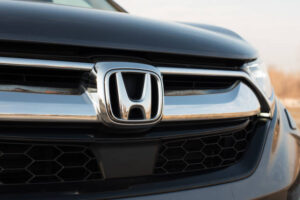
Honda is a Japanese multinational automobile company known for manufacturing various cars, motorcycles, and power equipment. Established by Soichiro Honda in 1948, the company is headquartered in Tokyo, Japan.
History: Honda was established in 1948 by Soichiro Honda and quickly rose to become one of Japan’s largest motorcycle manufacturers. Later, the company started producing cars in the 1960s, eventually becoming one of the world’s biggest automotive producers. Nowadays, Honda sells its vehicles across more than 100 countries worldwide, with production facilities situated across numerous nations.
Brand Identity and Reputation: Honda’s brand identity is built upon producing reliable, efficient, and practical vehicles. The company has earned a reputation for producing high-quality models built to last. Furthermore, Honda is known for its commitment to innovation, investing heavily in electric and autonomous vehicle technology.
Brand Perception and Consumer Preferences: Honda is generally seen as a brand that produces high-quality, dependable vehicles suitable for many consumers. While preferences vary depending on the market, some of Honda’s most popular models include the Civic, Accord, CR-V, and Odyssey.
Model Lineup and Features: Honda offers a comprehensive lineup of cars, SUVs, and minivans. Popular models include the Civic, Accord, CR-V, and Odyssey. Honda vehicles are known for their advanced safety features like forward collision warning, lane departure warning, and automatic emergency braking. Furthermore, Honda provides electric and hybrid options such as the Accord Hybrid or Clarity.
Industry Trends and Innovations: Honda has been at the forefront of electrification in the automotive industry. They’ve invested heavily in electric and hybrid vehicle technology, with models like the Honda Clarity and Accord Hybrid leading the charge. Furthermore, Honda explores autonomous driving technology by testing self-driving cars on public roads.
Marketing and Advertising Strategies: Honda’s marketing strategy emphasizes the company’s dedication to quality, reliability, innovation, and sustainability. Most of Honda’s advertisements focus on the features and benefits of its vehicles, such as advanced safety technology or fuel efficiency ratings. Furthermore, Honda promotes electric and hybrid models as environmentally friendly alternatives to demonstrate its dedication to sustainability.
Competition and Market Share: Honda faces fierce competition from several automotive giants, such as Toyota, General Motors, and Volkswagen. Nevertheless, Honda remains one of the world’s largest automakers by sales volume and among the top car brands. In America alone, its market share hovers around 8%, placing it against other Japanese brands like Toyota or Nissan.
Future Outlook: Honda’s future outlook is positive as the company invests in cutting-edge technologies like electric and autonomous driving. Their goal is for two-thirds of their global vehicle sales to be electric by 2030, and they plan to invest $2.75 billion into electric and autonomous vehicles by 2025. Furthermore, Honda is expected to prioritize quality and dependability when producing cars – maintaining its reputation as a trustworthy brand with long-term reliability.
5.Mercedes-Benz:
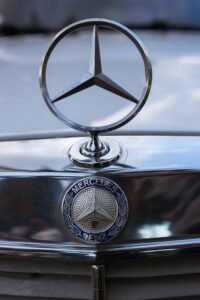
Mercedes-Benz is a German luxury automobile company renowned for producing top-of-the-line cars, buses, and trucks. Headquartered in Stuttgart, Germany, the Daimler AG group of companies owns Mercedes-Benz.
History: Mercedes-Benz has a rich and storied past, beginning in 1886 when Karl Benz invented the world’s first automobile. In 1926, two of Germany’s oldest automotive manufacturers merged to form Daimler Motoren Gesellschaft and Benz & Cie, creating what would later become Mercedes-Benz AG.
Brand Identity and Reputation: Mercedes-Benz is synonymous with luxury, elegance, and performance. The company produces high-quality vehicles equipped with cutting-edge technology. Furthermore, Mercedes-Benz is committed to innovation by investing heavily in electric and autonomous vehicle technology.
Brand Perception and Consumer Preferences: Mercedes-Benz is typically seen as a high-end luxury brand that emphasizes performance, technology, and style. Their vehicles appeal to those who value quality and luxury; some of the company’s popular models include C-Classes, E-Classes, S-Classes, and GLCs.
Model Lineup and Features: Mercedes-Benz offers an extensive selection of cars, SUVs, and performance vehicles. Their vehicles are renowned for their cutting-edge safety technology, infotainment systems, and powerful engines. Furthermore, Mercedes-Benz provides hybrid and electric models like the EQC or EQS; stay tuned!
Industry Trends and Innovations: Mercedes-Benz has been at the forefront of electrification in the automotive industry. The company has invested heavily in electric and hybrid vehicle technology, with models like EQC and EQS leading the charge. Furthermore, Mercedes-Benz is exploring autonomous driving technology by testing self-driving cars on public roads.
Marketing and Advertising Strategies: Mercedes-Benz’s marketing strategy underscores the company’s dedication to quality, luxury, and innovation. Their ads typically highlight features of their vehicles, such as advanced safety technology, performance capabilities, and cutting-edge technology. Furthermore, Mercedes-Benz emphasizes sustainability by promoting electric and hybrid models as environmentally friendly alternatives. Today Mercedes-Benz is one among the top car brands globally.
Competition and Market Share: Mercedes-Benz faces intense competition from other luxury automakers such as BMW, Audi, and Lexus. Nevertheless, Mercedes-Benz remains one of the world’s largest luxury automakers by sales volume and one among the top car brands globally. In America alone, Mercedes-Benz’s market share hovers around 2% – placing it alongside brands like BMW and Audi.
Future Outlook: Mercedes-Benz’s prospects appear promising, with the company continuing to invest in cutting-edge technologies like electric and autonomous driving. They aim to have electric vehicles account for 50% of their global sales by 2030 and plan to invest $47 billion into electric and autonomous vehicle production by then. Furthermore, Mercedes-Benz will prioritize luxury, performance, and innovation when creating vehicles, cementing its position as a leader in luxury automotive production.
6.BMW:
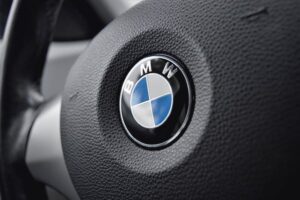
BMW is a German luxury car manufacturer renowned for producing high-performance vehicles. Headquartered in Munich, Germany, BMW belongs to the larger BMW Group of companies.
History: BMW has a rich and storied past from 1916 when they began producing aircraft engines. After World War I, their focus shifted from aircraft production to motorcycle manufacturing and car production. Their reputation for producing high-quality, performance cars was cemented during the 1960s and ’70s with models such as the BMW 2002 and 3 Series.
Brand Identity and Reputation: BMW is renowned for producing high-performance luxury vehicles emphasizing driving dynamics and advanced technology. The company also boasts a reputation for creating cars that are fun to drive, emphasizing precision handling. Furthermore, BMW has demonstrated its commitment to sustainability by investing heavily in electric and hybrid vehicle technology.
Brand Perception and Consumer Preferences: BMW is widely perceived as a high-end brand emphasizing performance and driving dynamics. Its vehicles appeal to those who appreciate quality, luxury, and sporty driving experiences. Popular models from BMW include the 3 Series, 5 Series, and X3.
Model Lineup and Features: BMW offers a comprehensive selection of cars and SUVs with sporty driving dynamics and cutting-edge technology. Their vehicles are renowned for their powerful engines, advanced safety systems, and cutting-edge infotainment systems. Furthermore, BMW provides hybrid and electric models like the i3 and iX.
Industry Trends and Innovations: BMW has been at the forefront of electrification in the automotive industry, investing heavily in electric and hybrid vehicle technology, with models like the i3 and iX leading the charge. Additionally, BMW is exploring autonomous driving technology by testing self-driving cars on public roads.
Marketing and Advertising Strategies: BMW’s marketing strategy underscores the company’s dedication to performance and innovation. Their advertising campaigns typically highlight advanced safety capabilities, performance capabilities, and cutting-edge technology in their vehicles. Furthermore, BMW emphasizes sustainability by promoting electric and hybrid models as environmentally friendly alternatives.
Competition and Market Share: BMW faces off against several other luxury automotive manufacturers, such as Mercedes-Benz, Audi, and Lexus. Despite this, BMW remains one of the world’s largest luxury automakers by sales volume and one among the top car brands worldwide. In America alone, its market share hovers around 2% – placing it against other high-end brands like Mercedes-Benz or Audi.
Future Outlook: BMW’s outlook for the future is positive, as they continue investing in cutting-edge technologies like electric and autonomous driving. Their goal is for electric vehicles to account for 50% of global sales by 2030, and they plan to release at least 10 electric models by 2025. Furthermore, BMW will prioritize luxury, performance, and innovation when creating vehicle production – keeping its status as a leader in luxury automotive markets.
7.Nissan:

Nissan is a Japanese multinational automobile manufacturer that produces various cars, SUVs, and trucks. Headquartered in Yokohama, Japan, Nissan is renowned for producing affordable yet dependable vehicles.
History: Nissan has a rich and storied past, beginning in 1914 when the Kwaishinsha Motor Car Works was established. By the 1930s, they had begun producing cars and became well known for their Datsun vehicles, which became popular in America during the 1970s and ’80s. Unfortunately, in the 1990s, Nissan faced financial issues which necessitated restructuring its operations; fortunately, today, it is one of the world’s largest automakers.
Brand Identity and Reputation: Nissan is known for producing reliable, affordable vehicles with an emphasis on innovation and technology. Their prices are lower than other automakers’ offerings, making them appealing to budget-conscious buyers. Furthermore, Nissan is known for its dedication to electric and hybrid vehicle technology, with several models offered in these categories. And Nissan is one among the top car brands worldwide.
Brand Perception and Consumer Preferences: Nissan is generally seen as a valuable, reliable brand that prioritizes value. Their vehicles appeal to those who prioritize affordability, dependability, and practicality. Popular models include the Altima, Rogue, and Sentra – all popular among Nissan customers.
Model Lineup and Features: Nissan offers a comprehensive selection of cars, SUVs, and trucks that prioritize affordability, dependability, and innovation. Their vehicles are renowned for their advanced safety systems, cutting-edge infotainment systems, and fuel efficiency. Furthermore, Nissan also has several electric and hybrid models, such as the Leaf and Ariya, available.
Industry Trends and Innovations: Nissan has been at the forefront of electrification in the automotive industry. As one of the first mass-market electric vehicle providers with their Leaf model, they continue to invest in electric and hybrid technology. Furthermore, Nissan is exploring autonomous driving capabilities by testing self-driving cars on public roads.
Marketing and Advertising Strategies: Nissan’s marketing strategy emphasizes the company’s dedication to innovation and technology. Their advertisements typically highlight features of their vehicles, such as advanced safety capabilities, performance capabilities, and cutting-edge technology. Furthermore, Nissan stresses sustainability by promoting electric and hybrid models as environmentally friendly alternatives.
Competition and Market Share: Nissan faces fierce competition from several automakers, such as Toyota, Honda, and Hyundai. Nevertheless, Nissan remains one of the world’s largest automakers by sales volume and one among the top car brands. In America alone, its market share hovers around 6% – placing it alongside mid-level automakers like Kia or Mazda.
Future Outlook: Nissan’s outlook is positive, with the company investing in advanced technologies like electric and autonomous driving. They have set a goal of having electrified vehicles account for 50% of global sales by 2025 and plan to release several new electric and hybrid models over the coming years. Furthermore, Nissan is expected to prioritize affordability, dependability, and innovation when producing vehicles – cementing its position as a leader in mid-level automotive markets.
8.Chevrolet:
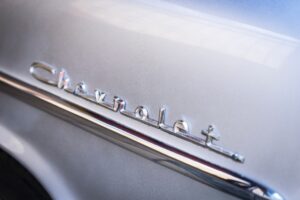
Chevrolet (also spelled Chevy) is an American auto manufacturer that produces various cars, trucks, and SUVs. Headquartered in Detroit, Michigan, and owned by General Motors, the company produces vehicles across North America.
History: Chevrolet was established in 1911 by Louis Chevrolet and William C. Durant, founder of General Motors. Their first car, the Series C Classic Six, was produced in 1912; over the next century, they produced several iconic models such as Corvette, Camaro, and Impala. Furthermore, Chevrolet played an important role in American culture, with its vehicles featured prominently in movies, TV shows, and popular music recordings.
Brand Identity and Reputation: Chevrolet is known for producing reliable, versatile vehicles emphasizing performance and design. Their vehicles typically fall within the mid-range price point, making them attractive to consumers who value performance and affordability. Furthermore, Chevrolet demonstrates its dedication to innovation and technology with several models featuring advanced safety features and infotainment systems.
Brand Perception and Consumer Preferences: Chevrolet is widely perceived as a reliable American brand that prioritizes performance and design. Their vehicles appeal to those who value both practicality and style, often used as family cars or work vehicles. Popular models include the Silverado truck, Equinox SUV, and Camaro sports car.
Model Lineup and Features: Chevrolet offers a comprehensive selection of cars, trucks, and SUVs that prioritize performance and versatility. Their vehicles are known for their advanced safety systems, comfortable interiors, and cutting-edge infotainment systems. Furthermore, Chevrolet also provides several electric and hybrid models, such as the Bolt EV and Volt.
Industry Trends and Innovations: Chevrolet has been at the forefront of electrification in the automotive industry, offering several electric and hybrid models. Furthermore, they are testing autonomous driving technology with plans to launch a self-driving vehicle by 2025.
Marketing and Advertising Strategies: Chevrolet’s marketing strategy showcases the company’s dedication to innovation and performance. Their advertisements typically highlight the features and benefits of their vehicles, emphasizing advanced safety capabilities, performance capabilities, and cutting-edge technology. Furthermore, Chevy pays homage to its American heritage by positioning its cars as symbols of American strength and ingenuity.
Competition and Market Share: Chevrolet faces fierce competition from other automakers such as Ford, Toyota, and Honda. Nevertheless, Chevrolet remains one of the world’s leading automakers by sales volume and one among the top car brands. In America alone, its market share hovers around 12% – placing it against mid-level automakers like Nissan or Kia.
Future Outlook: Chevrolet’s future outlook is positive as the company invests in cutting-edge technologies like electric and autonomous driving. Their goal is for electric vehicles to account for 30% of their global sales by 2025, and they intend to launch several new electric and hybrid models over the coming years. Furthermore, Chevrolet plans to prioritize performance and versatility in vehicle production, cementing its position as a leader in mid-level automotive markets.
9.Hyundai:
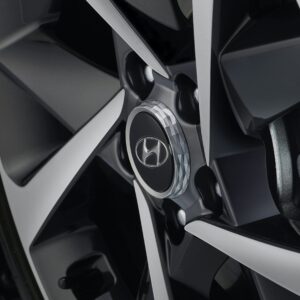
Hyundai is a South Korean automotive manufacturer that produces various cars and SUVs. Established in 1967, their headquarters are in Seoul, South Korea. Hyundai has grown to become one of the world’s largest automakers, with a strong presence within the US and global markets.
History: Hyundai was established in 1967 as a construction company and began manufacturing cars by introducing the Pony model in 1968. Since then, they have grown into one of the world’s largest automotive companies with numerous awards and accolades for their vehicles – including multiple “Car of the Year” accolades.
Brand Identity and Reputation: Hyundai is renowned for producing reliable, high-quality vehicles at an affordable price point. Their designs incorporate innovation and technology, with many customers complimenting them on their advanced safety features and comfortable interiors. Furthermore, Hyundai stands out due to its strong warranties, which provide buyers with extra peace of mind.
Brand Perception and Consumer Preferences: Hyundai is widely viewed as a high-quality, reliable brand emphasizing innovation and technology. Its vehicles appeal to those who value practicality and affordability; many are used as family cars or for commuting. Popular models from Hyundai include the Sonata sedan, Tucson SUV, and Kona electric SUV.
Model Lineup and Features: Hyundai offers a selection of cars and SUVs emphasizing innovation and technology. Their vehicles are renowned for their advanced safety systems, comfortable interiors, and cutting-edge infotainment systems. Hyundai also provides several electric and hybrid models, such as the Kona electric SUV and Ioniq hybrid.
Industry Trends and Innovations: Hyundai has been at the forefront of electrification in the automotive industry, offering several electric and hybrid models. Furthermore, they are exploring autonomous driving technology with plans to launch a self-driving vehicle by 2024. Furthermore, Hyundai invests heavily in advanced manufacturing techniques such as robotics and artificial intelligence.
Marketing and Advertising Strategies: Hyundai’s marketing strategy emphasizes the company’s dedication to innovation and quality. Their advertising campaigns typically showcase features and benefits of their vehicles, such as advanced safety capabilities, performance capabilities, and cutting-edge technology. Furthermore, Hyundai demonstrates its dedication to sustainability by promoting electric and hybrid models to reduce emissions while creating a more sustainable future.
Competition and Market Share: Hyundai faces stiff competition from several automakers, such as Toyota, Honda, and Kia. Despite this, Hyundai remains one of the world’s largest automakers by sales volume and one among the top car brands. In America alone, its market share hovers around 5%, placing it against mid-level automakers like Mazda or Subaru.
Future Outlook: Hyundai’s future outlook is positive as the company invests in advanced technologies like electric and autonomous driving. Their goal is for electric vehicles to account for 10% of global sales by 2025, and they plan to launch several new electric and hybrid models over the coming years. Furthermore, Hyundai is expected to prioritize innovation and technology when producing vehicles, maintaining its position as a leader in mid-level automotive production.
These are only some of the world’s top car brands; many others are equally renowned and beloved.
Frequently Asked Questions:
1. Which car brands are the most beloved around the world?
Toyota, Ford, Volkswagen, BMW, Mercedes-Benz and General Motors are among the most beloved global automobile brands.
2. Which car brand is the most reliable?
Consumer Reports has identified Lexus, Mazda and Toyota as being among the most dependable automobile brands.
3. Which car brand offers the best safety features?
Volvo is known for having some of the top safety systems, such as advanced driver assistance systems and crash avoidance technologies in their vehicles.
4. Which car brand is currently the most expensive in the world?
Bugatti is currently leading this list with their latest model, the Bugatti Chiron, retailing at over $3 million.
5. Which car brand produces the greenest vehicles?
Tesla is known for producing some of the most eco-friendly vehicles, with their electric cars boasting zero emissions and offering a longer range than many other electric models.
6. Which car brand has the highest customer satisfaction rating?
According to the American Customer Satisfaction Index, Lexus boasts the highest satisfaction rating among car brands.
7. Which car brand has the highest resale value?
According to Kelley Blue Book, Toyota, Honda and Subaru are known for having some of the highest resale values among car brands.
8. Which car brand produces the fastest cars?
Bugatti, Lamborghini and Ferrari are renowned for creating some of the fastest automobiles in existence with top speeds exceeding 200 miles per hour.

